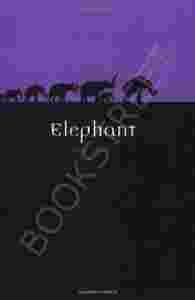|
Aristotle characterized the elephant as 'the beast
which passeth all others in wit and mind', and the
animal has long figured in cultural artefacts, even on
continents it has never inhabited. The elephant's
countless manifestations in human history have made it
one of the most charismatic animals, and ''Elephant''
provides a richly illustrated, engaging look at that
legacy. The image of the elephant can be found
throughout world religions and cultures as a symbol of
intelligence, strength and loyalty. Wylie draws on a
rich array of cultural examples to document that
symbolic power, ranging from religious iconography for
the Hindu god of wisdom, Ganesh, to beloved children's
works such as ''Dumbo'', ''Babar the Elephant'' and
''Horton Hears a Who!''. ''Elephant'' also considers the
recurrent role of the animal in myths, paintings and
sculptures. Turning to the elephant's biological
history, Wylie describes the three remaining species -
the African Bush Elephant, the African Forest Elephant
and the Asian Elephant - and the controversial
international efforts for elephant conservation.With
ivory poaching and human encroachment into the animal's
natural habitats, Wylie argues that we face a uniquely
poignant conservation crisis in which elephants and
humans both consume limited natural resources
unsustainably. A compelling new entry in the ''Animal''
series, ''Elephant'' will be a necessary addition to
every animal lover's bookshelf. |
|

